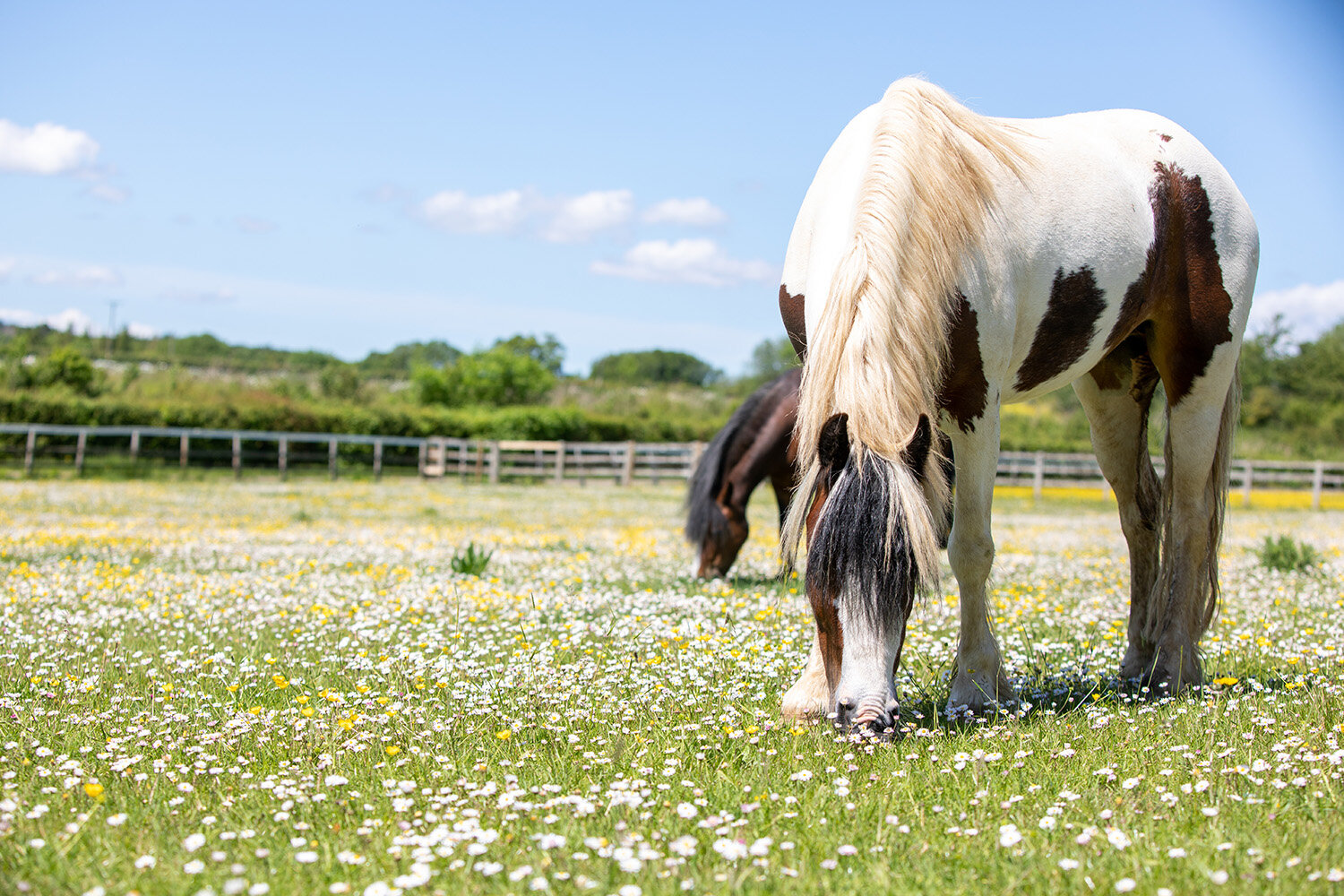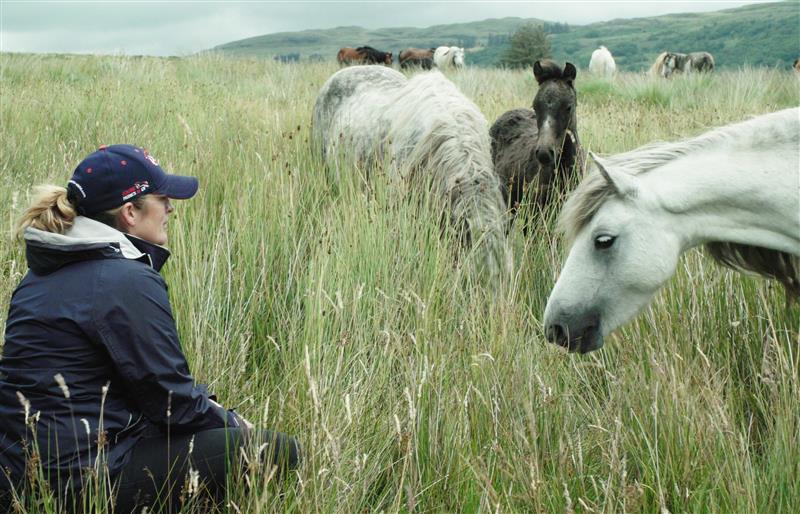Maintaining your horse at a healthy weight can be difficult, especially with some native breeds who seem to look at grass and gain weight! One of the most common health issues seen routinely by vets in the UK is horses being overweight. Most horse owners understand the dangers of a horse becoming too thin, but being overweight is just as unhealthy and can be much more difficult to manage. Although many owners know that their horse shouldn’t carry excess weight, often the challenge is in recognising what a healthy condition looks like as, unfortunately, it has become normal to see horses carrying more weight than they should.

Being both underweight and overweight comes with their own set of potential causes and further problems, which can compromise your horse’s health and quality of life.
| Underweight | Overweight | |
| Examples of common causes | Underweight Lack of appropriate diet Worm burden Dental issue Cushing’s/PPID | Overweight Excess calorie intake/lack of appropriate diet Lack of exercise Equine metabolic syndrome |
| Examples of potential associated problems | Underweight Anaemia Gastric ulcers Lethargy Less able to perform during exercise | Overweight Laminitis Extra strain on the heart and lungs Added pressure on limbs and joints Less able to perform during exercise |
As overweight horses are more commonly seen, the rest of the page will focus on managing overweight horses.
How to determine if a horse is overweight
The first thing to understand is the assessment criteria you can compare your horse to. Knowing your horse’s weight is useful for a number of reasons but it won’t tell you if this is appropriate for them.
There are two main fat scoring systems, the 0-5 system (Carroll and Huntingdon) or the 1-9 system (Henneke). Both provide an effective way of assessing condition and use hands-on techniques to feel for fat cover rather than just looking at a horse. If you have limited experience of fat scoring, the 0-5 system can be easier to apply.
A weigh tape is a good tool for monitoring weight and identifying changes but must be used in conjunction with fat scoring to assess condition. The most accurate weigh tapes have both a horse and pony side so you can choose the correct one according to your horse’s height. If you have access to a weighbridge this gives an accurate measurement so is a good tool for monitoring changes in weight.
Ten top tips for managing your horse’s weight
You can also watch the videos and download our Right Weight leaflet.
“Keeping your horse at a healthy weight throughout the year (part 1)” – with internationally renowned clinical equine nutritionist Dr Teresa Hollands and our own Head of UK Support Sam Chubbock.
“Keeping your horse at a healthy weight throughout the year (part 2) – nutrition” – with internationally renowned clinical equine nutritionist Dr Teresa Hollands and our own Assistant Centre Manager at Glenda Spooner Rescue and Rehoming Centre Sara Jerman.
How to know if your horse is the Right Weight

Our guide provides further information on:
- Problems associated with horses being overweight
- Updated resources on how to fat score
- Weight loss tips
- A weight chart to track your horses weight loss journey
How to fat score

- Download our posters on how to fat score
- Perfect for your tack room
- Contact education@worldhorsewelfare.org to request a posted copy for your yard
World Horse Welfare Fat Scoring Podcast
Equine obesity

Our guide provides further information including:
- Discussion on why obesity is a disease of domestication
- Energy balance and links to obesity
- Further tips and guidance on reducing your horse’s weight
NOTE: This guide shows images of dissection.
Popular advice in Nutrition

Feeding horses
Guidance on feeding to get the right nutrition for your horse including how to begin when making changes to their diet.

Horse Nutribaloney
Common horse nutrition myths dispelled by Registered Independent Equine Nutritionist Clare MacLeod MSc RNutr
Other advice categories
All webinar categories:
Call our Advice Line
+44 (0)1953 497 238Not found the advice or answer you were looking for here? Then our Advice Line is available during office hours, or you can email us on education@worldhorsewelfare.org to let us know what topics you were looking for.



